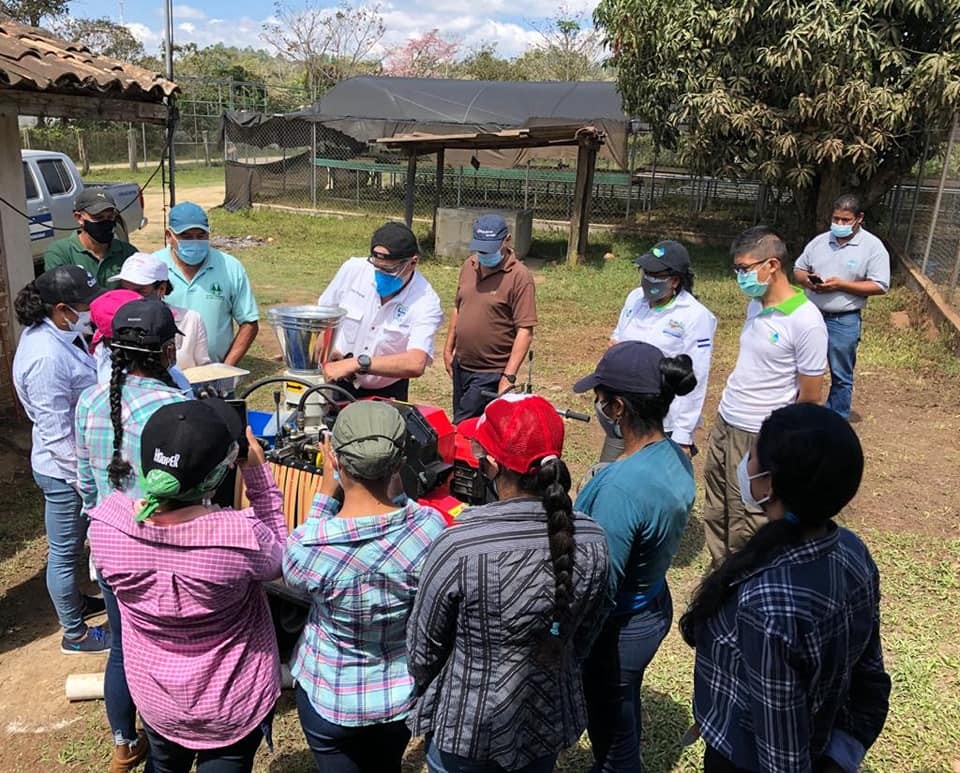
TaiwanICDF Promotes Biofuel Pellets in Honduras to Enhance Forest Health and Revitalize Rural Communities
The International Cooperation and Development Fund (TaiwanICDF) has implemented the Innovation Project of Utilizing Biofuel Techniques to Convert Discarded Wood and Leaves into Household Energy (hereafter the biofuel pellet project) in Honduras to expand the effectiveness of the Honduras Forest Pest Management Project. The Taiwan Technical Mission in Honduras will guide four local communities through the overall process of promoting biofuel pellets, from collecting discarded pine needles, chipping, and pelletizing to distributing pellets to households or factories. By using the biofuel pellet project to establish a model of reusing forest resources, the TaiwanICDF hopes to help Honduras not only convert forest waste into clean energy but also increase community residents’ income.
In February, the four partner communities received chippers and pelletizers from Taiwan. The Taiwan Technical Mission in Honduras and its Honduran partners, Institute of Forest Conservation (ICF) and National School of Forestry Sciences (UNACIFOR), then held training events on machine operation and pellet production in various communities during February and March. To date, the community residents have collected 67 tons of pine leaves and are able to make fuel pellets from pine needles by running the machines on their own.
Francisco Escalante, Vice Minister of ICF, said that over 60 percent of the forest in Honduras is covered by pine trees, and hundreds of human-caused forest fires occur in the dry season every year. He also highlighted how the introduction of this new technique can decrease the amount of pine needles under pine trees and further improve the forest health of Honduras. In addition, UNACIFOR’s Professor Cesar Alvarado, who helps the project by pelletizing tests, stated that Taiwan-made pelletizers manufacture pine needle pellets of good quality. The heating value of the pellets is able to reach 4,400 kcal/kg, which is better than that of pine wood pellets at 3,747 kcal/kg.
The biofuel pellet project will continue to seek other reusable resources for pelletizing tests. For example, sugarcane bagasse, corn stalk, coffee grounds, and coffee bean shells are all agricultural wastes which have potential to be recycled and reused. The TaiwanICDF looks forward to creating greater added value for more kinds of agricultural wastes in Honduras.
- Update: 2021/04/13
- Hits:350

